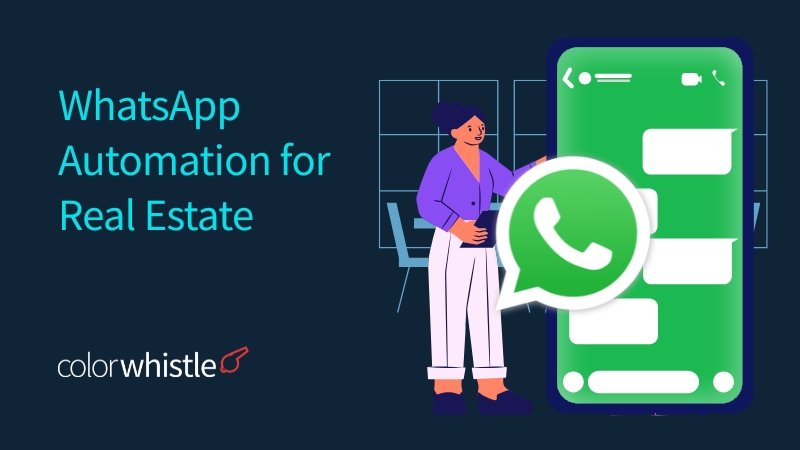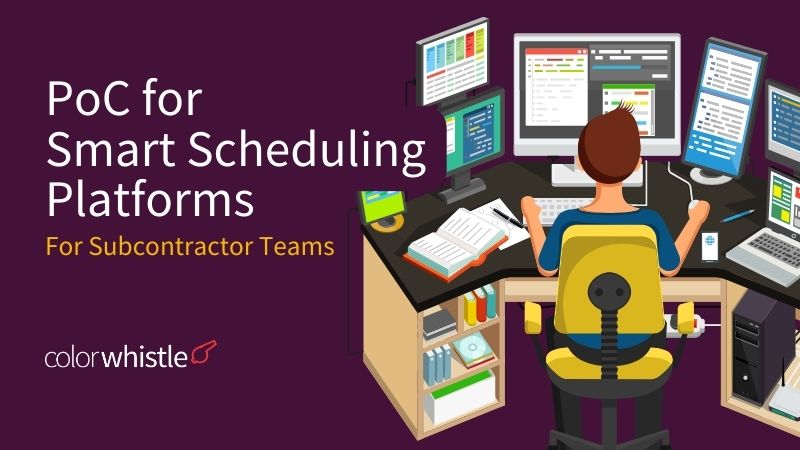AI Summary
Key Highlights of Real Estate Social Media Strategy Guide
This post explores how realtors can leverage social media to adapt marketing strategies in a post-pandemic world. The key insight: social media platforms like Facebook, LinkedIn, and Instagram effectively generate high-quality leads and build trust through authentic client stories and targeted ads. It details platform-specific tips, do's and don'ts, and emphasizes choosing the right channels over spreading too thin. Realtors will learn to create engaging content, maintain professional profiles, and use paid and organic tactics to grow their brand. This guide serves real estate professionals aiming to boost online presence, generate leads, and increase sales efficiently.
Food, cloth, and shelter, being the necessities of life, have a steady demand. From the principle of demand and supply, we ascertain that the prices of commodities increase steadily when demand increases with a supply constraint. Real Estate, being the prerequisite for shelter, always has a demand and a significant industry, considering revenues and business opportunities.
The COVID-19 pandemic has drastically changed the entire marketing scenario over the past years. Every industry needs to change its marketing platform while everyone stays at home. Although the real estate industry mainly depends on in-person or face-to-face marketing, the necessity of making an online presence has increased with stay-at-home directives. Instead of scheduling property showings and client meetings, the realtors are now trying to establish the strongest online platform through digital marketing and social media.
In the past, we have extensively discussed digital marketing for real estate. We have even analyzed various Digital Marketing case studies specific to the industry.
Social media, on the other hand, can be a game-changer for marketing in any industry. It is especially effective for real estate. Both organic and paid social strategies perform remarkably for generating leads for real estate. Here, we will put our focus on how you can leverage the most popular social media platforms to grow your real estate business.
The Power of Client Stories and Testimonials
Nothing builds trust like real stories from real people. Sharing testimonials, whether it’s a first-time buyer’s joy or a family moving into their dream home, turns your success into proof of credibility.
- Trust Factor: Testimonials act as digital word-of-mouth, reassuring prospects you truly “get” their needs.
- Human Touch: Client stories add warmth and relatability in a market often dominated by numbers.
- Organic Reach: Happy endings are shareable, meaning your clients help spread your brand for you.
Authentic voices speak louder than any sales pitch. Use them to show not just what you do, but the difference you make.
Why are Realtors Prioritizing Social Media?
The National Association of Realtors’ report on Real Estate in a Digital Age ascertained social media as the best tool for generating high-quality leads for realtors. The report cited that 44% of all real estate buyers look online while searching for their dream home. It makes sense because a brand’s presence on social media enhances trust among its followers.
People engage with posts, provide direct feedback, and express what they found good about a product. It helps them a lot to make the right decision on buying and selling their property. Social media also creates a ripple effect through social shares. Since the real estate domain is a necessity for every type of individual, it maximizes brand visibility and thus reaching out to more and more people.
Companies today think that having a presence overall on available social media platforms will amount to a “good” marketing strategy.
But did you know?
Social media comes in many forms and the eight most popular are: Blogs, Microblogs, Social Networks, Media-Sharing Sites, Social Bookmark-ing and selection Sites, analysis Sites, forums and effective Worlds (Saravanakumar and Suganthalakshmi, 2012).
Which one would you choose?
The audience is smart. Netizens are smart. A new company with a presence all over social media platforms shows a sign of desperation & not commitment. So it is important to choose and increase followers on platforms that suit your business.
As you continue exploring social media, you will understand better the specific needs of your business and the most suitable social media platforms to reach your real estate business to the next level.
The below video link may provide you more information regarding real estate and social media:
Being one of the best social media platforms, Facebook helps realtors to build their property business by connecting with prospective customers. The user demographics of Facebook represent the target audience of the real estate industry as most users are between the ages between 25 and 56, the earning group in the society. Facebook allows realtors to publish property listings and video contents of properties, run live streamings, communicate with prospective customers, and so on.
Although most realtors use personal profiles, creating a business page is better to connect with the target audience. It makes your real estate business more professional and allows realtors to use more features that are not available in the personal account.
You can use other social media platforms to build your personal brand.
Facebook Ads is one of the main features that allows you to connect with more potential customers. Following are some of the tips for Facebook real estate marketing:
- Update cover photo frequently
- Highlight featured listings
- Add photos and videos of listings
- Respond to comments
- Share interesting facts about listings
- Run live streamings of listings
Look at this Facebook Ad below:

Source: The Concoran Group
We think that this real estate ad on Facebook is just about enough to create curiosity with minimum yet comprehensive property description and stunning image. Real estate agents can now micro-audience their audience to generate quality leads.
You will find this blog highly informational showcasing successful real estate Facebook ads examples.
Do’s and Don’ts for Realtors on Facebook
Do’s
- Use visual storytelling with photos, short videos, and virtual tours to make listings come alive.
- Keep your business page updated with accurate contact details and a clear description of your services.
- Pin key posts so visitors quickly understand what you offer.
- Engage with your audience by answering questions, replying to comments, and sharing helpful local insights.
- Add relevant hashtags to increase visibility and reach.
Don’ts
- Avoid making every post a sales pitch. Mix listings with helpful tips, community updates, and educational content.
- Do not ignore comments or inquiries. A quick, friendly response can spark real client interest.
- Do not post sporadically or leave outdated content on your page. Stay consistent to keep your presence strong.
Bottom line: A Facebook strategy that blends engaging visuals, community value, and steady interaction will build trust and attract long-term clients.
The large user base of LinkedIn helps realtors to connect with potential customers and fellow realtors. LinkedIn allows realtors to post articles, communicate with clients, advertise properties, and so on. LinkedIn is the most useful social media tool for realtors where you can find a large pool of business owners and professionals who are looking for the right property.
According to a study conducted by Hubspot, LinkedIn is the most effective social media platform for lead generation than Facebook and Twitter. Here are some of the tips to maintain your LinkedIn page:
- Create a LinkedIn real estate profile
- Provide a good summary of your real estate business
- Post and share content regularly
- Post photos of properties
- Connect with more people
Do’s and Don’ts for Realtors on LinkedIn
Do’s
- Join and contribute to LinkedIn Groups in real estate to expand your network and exchange ideas.
- Complete and optimize your profile to highlight your expertise and credibility.
- Share industry news, insights, and original content to position yourself as a market authority.
- Engage through thoughtful comments and professional discussions to nurture relationships and potential referrals.
- Keep your page fresh with updates on successes, listings, and milestones.
Don’ts
- Do not leave your profile incomplete or outdated. It gives off an unprofessional image.
- Avoid posting irrelevant content or sending unsolicited sales messages.
- Do not disappear for weeks at a time. Consistency is key to staying visible.
- Do not ignore genuine connection requests or messages. Timely responses build trust and opportunities.
Bottom line: A professional, active, and value-driven approach on LinkedIn helps you stand out, build authority, and win more business.
As the user base of Instagram surpassed 1 billion, it remains one of the best social media platforms for marketers, no exception for realtors. Set up an Instagram account for your real estate business that helps you reach your business to a more specific audience. The following are some tips to maintain your Instagram profile:
- Create a content calendar
- Upload images and videos regularly
- Use hashtags
- Use Instagram Ads
Instagram is great for motion ads as video playback is automatically enabled as the user scrolls past the post, prompting their quick attention. Having said that, stunning property images in carousel posts will always remain the traditional choice.
Here is an example of an unconventional real estate post to create interest among the audience:
You can get inspired by many other leading Instagram influencers in the real estate niche to build your personal brand. Click here to read more about it.
Here’s also a cool Instagram hack from Neil Patel to get more people to discover and follow you.
Do’s and Don’ts for Real Estate Agents on Instagram
Do’s
- Show both your professional side and your personality to build trust.
- Mix polished property shots with behind-the-scenes, client wins, and daily moments.
- Use Instagram Live, Stories, and Reels to share timely updates and walkthroughs.
- Plan with a content calendar for consistency and variety.
- Keep visuals sharp, high quality, and paired with engaging captions.
Don’ts
- Do not let your feed look messy. Stick to a consistent style and tone.
- Avoid low-quality, blurry, or cluttered images.
- Do not go silent for weeks. Stay active to keep followers engaged.
- Never ignore comments or DMs. Your responsiveness builds relationships.
Bottom line: Blend stunning visuals with authentic moments, and your Instagram will stand out as both professional and relatable.
YouTube Marketing for Realtors: Why It Works
With nearly 2.5 billion monthly users, YouTube is a goldmine for real estate agents who want to reach more buyers and sellers. Unlike static posts, video brings properties, neighborhoods, and your personality to life, helping you stand out in a crowded market.
Why YouTube Should Be on Your Radar
- Stand Out with Video: Most agents focus on Facebook or Instagram. A dedicated YouTube channel not only sets you apart but also boosts visibility in Google searches.
- Keep It Real: You don’t need movie-level production. Simple, authentic walkthroughs, neighborhood spotlights, or Q&A sessions build trust and credibility.
- Engage and Grow: Ask viewers to subscribe, like, and comment. Subscribers turn into a loyal audience for every new listing or market update.
- Explore Ad Options: YouTube ads, like in-stream or skippable pre-roll, get your listings in front of highly targeted local audiences.
- Think Search First: Add relevant keywords in titles, descriptions, and tags to increase discovery.
The takeaway: YouTube is more than a video platform; it’s a search engine and storytelling hub. Use it to showcase your expertise, amplify your reach, and give prospects an immersive look at what you bring to the table.
YouTube: Dos and Don’ts for Real Estate Agents
YouTube is one of the best platforms for real estate agents to showcase properties, share expertise, and build lasting trust with clients. But to make the most of it, you need to know what works—and what to avoid.
What to Do:
- Mix up your content: Post home tours, testimonials, live Q&As, and market updates to reach different types of viewers.
- Leverage ads: Use pre-roll or in-feed ads to put your listings in front of the right audience.
- Optimize everything: Craft keyword-rich titles, detailed descriptions, and smart tags to boost visibility.
- Add calls to action: Ask viewers to subscribe, visit your website, or reach out for details.
- Engage actively: Respond to comments and questions to show approachability.
What to Avoid:
- Skipping SEO: Uploading without keywords, tags, or descriptions means your video may never be found.
- Posting long, unedited clips: Keep videos concise, polished, and valuable.
- Being too salesy: Balance listings with educational videos, guides, and neighborhood insights.
- Ignoring analytics: Track what resonates with viewers and refine your strategy.
With the right approach, YouTube can become your go-to channel for attracting high-intent prospects and standing out in a competitive market.
Also Read
The Power of Visual Storytelling in Real Estate
In real estate, visuals sell faster than words. High-quality photos, before-and-after shots, and video tours instantly grab attention and spark emotion.
- Show, don’t just tell: Highlight a property’s best angles through Instagram Stories, Facebook slideshows, or YouTube walk-throughs.
- Make it relatable: Let prospects picture themselves in the space, whether it’s a cozy living room or a panoramic backyard view.
- Drive engagement: Visuals invite shares, comments, and conversations, turning casual scrollers into warm leads with just a tap.
A strong visual storytelling strategy makes your listings memorable and your brand stand out in a crowded feed.
Clubhouse
Clubhouse is a very recent update to social media platforms and is gaining fast popularity. It’s a real-time social media platform where people can get into discussions on a wide range of topics. Clubhouse enables you to conduct private and public discussions like real estate conferences.
Here is a video link that will explain how a real estate agent can use Clubhouse effectively:
TikTok for Real Estate Marketing
TikTok is no longer just for dance trends—it’s becoming a powerful platform for real estate agents to connect with younger audiences like Gen Z and millennials. With its short-form, fast-paced content style, TikTok offers a unique way to showcase your expertise while keeping things fun and relatable.
How to win on TikTok:
- Hook them fast: Use quick tours, before-and-after reveals, or lighthearted skits to grab attention in the first few seconds.
- Keep it real: Share candid moments, behind-the-scenes prep, or simple buyer tips. Authenticity is what TikTok rewards.
- Ride the trends: Leverage trending sounds, hashtags, or challenges to boost your reach and visibility.
- Engage actively: Reply to comments, try duets and stitches, and collaborate with local businesses or partners for fresh content.
- Mix education with fun: Share market insights, buying tips, or staging hacks in an entertaining, easy-to-digest format.
Pro tip: Don’t just recycle Instagram or YouTube clips. TikTok has its own vibe: playful, fast, and authentic. Lean into it, and you’ll stand out in a crowded market.
TikTok: Dos and Don’ts for Real Estate Agents
TikTok has quickly grown into a powerful platform for real estate agents to connect with Gen Z and millennials. It’s not just about entertainment done right; TikTok can help you showcase expertise, highlight properties, and build genuine connections.
What to Do:
- Find your niche: Whether it’s condos, luxury homes, or fixer-uppers, own your specialty so followers know what to expect from you.
- Educate while entertaining: Share quick tips, market updates, or fun real estate facts in bite-sized, engaging videos.
- Show personality: Be authentic, approachable, and even humorous. People follow people, not just listings.
- Use trends strategically: Leverage trending audio, hashtags, and challenges, but always tie them back to your brand.
- Showcase properties creatively: Think room tours, before-and-afters, or clever staging tips that grab attention fast.
What to Avoid:
- Copy-pasting from other platforms: TikTok thrives on its own style. Adapt your content instead of recycling.
- Skipping creative tools: Effects, music, and text overlays can make your videos stand out.
- Going too hard on sales: Keep the focus on value and personality; avoid sounding overly promotional.
- Ignoring engagement: Reply to comments, duet, and stitch with others. Community-building is key.
With its playful, high-energy vibe, TikTok gives real estate agents a unique stage to grow visibility and trust. All it takes is creativity, consistency, and a willingness to experiment.
How to Effectively Use Social Media for Real Estate in 2026?
- Plan your social media strategy.
- Setting up social media platforms.
- Tracking and Analytics.
Plan your social media strategy
Creating a plan essentially means setting right the expectations and ways to achieve them. Following are the most important pointers for your social media plan.
- Creating goals that are S.M.A.R.T.: Specific, Measurable, Achievable, Relevant, and Time-bound is the first step to your social plan. For example, your Real Estate business can have a goal to gain 300 high-quality leads in this month. It could also be to make 30 sales during the same period.
- Research your target audience: Not everyone can be your potential customer. Real Estate has a specific audience – people between 28 to 50 years of age with buying power, i.e. having a saving or a steady source of income. This audience should also be active on social media. Researching will also enable you to create a buyer persona that will help you understand the best way to speak to your potential customers. Once you have a buyer persona in place, you can expand your audience of which we’ll talk more about in the Facebook for Realtors section.
- Use the right social platforms: You need to research where your target audience hangs out. Instagram and TikTok might seem like popular places, but according to the latest numbers by Statista, 59% of the users on Facebook are aged between 25 to 54 years. This group forms a major part of our target audience.
- Use the right tools: The key to using social media effectively is to use tools that automate or simplify most of your work. This will not only boost the efficacy of your social campaigns but also free up your time that can be used for analysis to refine your campaign strategy.
When Should Realtors Hire a Social Media Expert?
Running your real estate business is already demanding, and managing social media on top of it can quickly become overwhelming. If posting, responding, tracking analytics, and keeping up with platform changes feels like a second full-time job, it may be time to call in an expert.
Signs you should consider hiring help:
- Time is too tight: You can’t consistently post or engage while juggling clients and showings.
- Effort isn’t paying off: Despite regular posting, you’re not seeing leads, engagement, or traffic grow.
- Platforms keep changing: Staying updated on algorithms and best practices is tough without dedicated focus.
- You’re ready to scale: From advanced ad campaigns to influencer partnerships, professionals can execute growth strategies.
- Analytics are confusing: Experts can translate complex data into clear, actionable steps.
Bottom line: A social media expert frees you up to focus on deals and client relationships while ensuring your online presence is polished, consistent, and results-driven.
Setting Up Social Media Platforms
Setting up social media accounts for your real estate business is essential to positioning your business on the digital platform. Creating social media pages can be a tedious task as each platform has its own identity.
The below table shows the required details to set up a social media accounts:
Profile photo
Wall photo
Location
Hours of operation
Types of business
Summary of business
Page name
Logo
Company page URL
Cover image
–
–
–
Company description
Logo
Business description
Social accounts
–
–
–
Company website URL
CLUBHOUSE
Profile photo
User name
Clubhouse invitation
–
–
–
Phone number
Also Read
Tracking and Analytics
Now that you’ve set your real estate social campaign up, you just don’t want to gather comments, likes, and messages from your post and ads. The data that your potential customer sends through has insights that, over time, can transform and take your business to the next level. Your real estate business will get communications from users every day and on multiple platforms. Some tools can help you streamline your processes, like scheduling posts, automating frequently asked questions, tracking performance, and analyzing user behavior and data gathered. Let’s have a look at some of those tracking and analytics tools:
1. Google Analytics
With Google Analytics, you can find out what type of content your target audience is interested in and what social media they prefer. Google Analytics enables you to measure how powerful your website is and fix the areas to be improved. Here are some of the points that you can identify with the Google Analytics tool:
- Overall traffic that your website gets
- Number of leads converted to business
- Demographic details of users
- Identifies mobile and desktop traffic
- Find out the websites your traffic comes from
- What type of content works better with social media
- Calculate your social media ROI
2. Keyhole
As a user-friendly analytic tool, Keyhole helps you find out the details of every social media account such as the number of posts, impressions, reach, and so on. It also provides the demographic information of account users and followers. Keyhole facilitates you to identify the greatest influencers based on the engagement rates and the number of followers.
3. Sprout Social
Being one of the best social media management tools, Sprout Social lets you use the full potential of social media platforms to take your real estate business to its height. This tool enables you to develop content calendars and schedule posts. Sprout Social lets you manage social media conversations. The biggest brands like Adidas and Nordstrom use Sprout Social to manage their social media platform.
4. BrandMentions
As a powerful tool for social media management, BrandMentions allows you to assess the success of your social media campaigns. As the name of the tool mentions, BrandMentions monitors brand reputation and business intelligence by providing real-time notifications.
5. Agorapulse
Agorapulse is an analytical tool that helps to identify your best social media content. Agorapulse generates reports across all social media platforms such as Facebook, Twitter, and Instagram. Using Agorapulse, you can easily manage comments and reviews from all your social media profiles on one platform.
Looking for Real Estate Website Development Services?
Seize and experience the transformative impact of Real Estate Development solutions with ColorWhistle.
Best Practices for Real Estate Social Media Marketing
Build an engaging presence with consistency, value, and personality.
- Stay authentic: Share behind-the-scenes, wins, and day-to-day moments that show the human side.
- Educate, don’t just sell: Post market tips, buying guides, staging advice, and quick explainer videos.
- Be consistent: Publish a few times per week. Use a simple content calendar to mix listings, testimonials, and neighborhood spotlights.
- Engage fast: Reply to comments and DMs. Host Q&As, Stories polls, or go live for virtual open houses.
- Vary formats: Use reels, short tours, Lives, carousels, and time-lapse clips to boost reach.
- Highlight community: Feature local businesses, events, parks, and people to sell the lifestyle.
- Leverage landing pages: Drive clicks to targeted pages for tours, new listings, or lead magnets. Add links in bio, Stories, and posts.
- Cross-promote: Put your handles on your website, email footer, digital cards, and property flyers.
With these habits, your social presence becomes consistent, helpful, and hard to miss. Want an ultra-short checklist version too?
Wrapping Up
It is certain that Social media marketing (SMM) is less concrete than other online marketing efforts, such as search engine optimization (SEO) and pay-per-click (PPC). It is easier to measure direct results with SEO and PPC campaigns. It can show just how effective the marketing efforts were to get the person to click on a particular link and perform the desired action or goal.
On the other hand, Social media marketing is about listening to and sharing great content with the audience. This helps raise brand awareness, kick-start conversation, and may increase conversions.
Now it is foreseen that we have experienced digital capitalism with the information revolution. Businesses are aligning themselves to make the most out of this information revolution by marketing themselves online. And to do this more effectively, they can consult a professional digital agency like ColorWhistle.
Such an agency will take the time to fully understand your vision, plan a custom digital marketing/social media strategy and care about consistent results. Additionally, website development support is also taken care of.
You can get in touch with our ColorWhistle digital marketing experts. Just drop us a message or give us a call +1 (210) 787-3600.
We would love to hear from you. Feel free to add your suggestions/queries in the comments section below.
In quest of the Perfect Real Estate Solutions Buddy?
Be unrestricted to click the other trendy writes under this title that suits your needs the best!
- Real Estate Digital Marketing Guide
- Real Estate Website Development and Digital Marketing Pricing
- Real Estate Agents Effective Marketing Ideas





